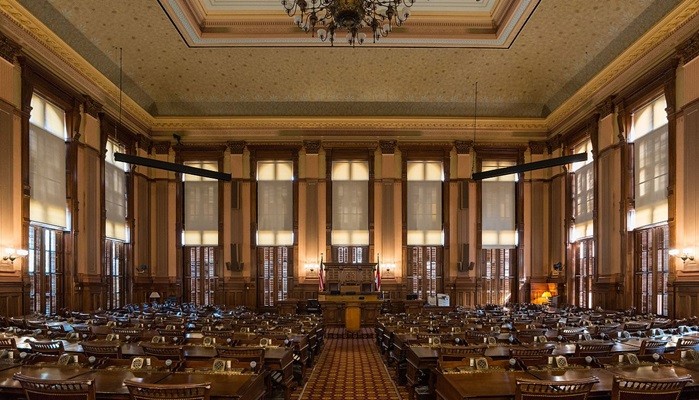The Georgia House of Representatives will convene on January 9 for the first legislative day of the New Year and after lawmakers failed to bring casino legislation to the House floor for a vote by a key deadline last year, supporters are prepared for another fight.
The deadline for Rep. Ron Stephens’ HR 807 to win passage from one chamber to another in order to move on for further consideration in the state Senate, or ‘crossover day,’ was on February 29 last year. The overwhelming approval of the bill by the Regulated Industries Committee at the time seemed to indicate the likelihood that it would make it to the House floor, but the vote was postponed by Speaker David Ralston, effectively killing the legislation for another year.
The legislation would have added the question to last November’s election ballot, asking Georgia voters to amend the state constitution to legalize casinos and permit the development of up to four in the state, with two in the metro Atlanta area. Compared with earlier proposals, a minimum of 90 percent of the state’s share of casino revenue would have been earmarked for the HOPE education scholarship program and the percentage of revenue paid by casinos in taxes would have increased. The changes to the proposal, however, weren’t enough to convince opponents, including Governor Nathan Deal, who at the time said that he didn’t believe casinos would “enhance the climate of the state.” Deal was also concerned that casinos could pull customers from the state-run lottery which funds the scholarship program.
Stephens said that this year he plans to present something similar to last year’s proposal, according to the Associated Press. The version of the constitutional amendment that was approved by the Regulated Industries Committee in February 2016, called for minimum investments of $1.25 billion for one Atlanta-area casino and $750 million for the other, with a $400 million investment for the final two statewide licenses. According to the report, state lobbying records show a minimum of 49 registrations on the behalf of several casino operators, including the two largest casino companies in the world; Las Vegas Sands (NYSE: LVS) and MGM Resorts (NYSE: MGM), which had expressed serious interest in an Atlanta-area casino, as well as Wynn Resorts (NASDAQ:WYNN).
Supporters of the amendment argue that casino gambling is the answer to the high demand for the HOPE grant. In recent years the education program has suffered from chronic underfunding. Meanwhile, Democrats want casino funds delegated to a new program that provides needs-based aid to fund higher education costs. Their votes are needed in the House, in order to reach the required margin for constitutional amendments.
Legislators estimate that as much as $250 million dollars in tax revenue would be generated by the casino resorts, in addition to the creation of 10,000 direct jobs.


